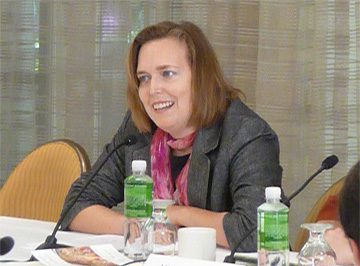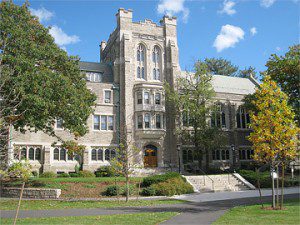Elaine Howard Ecklund, a sociologist at Rice University, is one of the world’s leading experts on scientists and religion. She has done extensive research on what scientists really think about religion, much of which you can find in her excellent book, Science vs. Religion: What Scientists Really Think.

The High Calling website has been featuring a series of articles/interviews of Ecklund written by Christine A. Scheller. Now, Scheller has offered a summary of her effort that I’ll reprint here:
In part one of the series, we introduced Ecklund and her work on this topic. We learned that in she has also investigated women’s presence in physics, feminist women in the Catholic church, how pediatricians and pediatric oncologists grapple with religion, and how new immigrants bring change to Christian churches in America and how religion shapes the political engagement of immigrant communities.
In part two, we were introduced to the concept of “boundary pioneers.” These are scientists who are well respected in the scientific community and who do cutting edge research, but are able to openly discuss issues related to faith in their work in a way that breaks down boundaries between science and faith.
In part three, we busted some myths about scientists’ views on religion and religious people. We learned that only two percent of scientists identify as evangelicals and that religious scientists tend to be more theologically and politically liberal than non-scientists. We also learned that less than ten percent of scientists are adamantly opposed to religion, even among those who identify as atheists.
In part four, we discussed Scientism, a perspective on the world that considers science as the only way of gaining access to truth or reality. Ecklund said that even among scientists, many disapprove of this view because they “see religious ways of knowing as separate and even valuable distinctions from scientific ways.”
In part five, we introduced Ecklund’s current research on international attitudes toward religion among scientists. She is currently in Europe interviewing biologists and physicists and says she and her team “can think of no better way to discover how the international science community negotiates religion than to go straight to the source and study scientists themselves.”
Scheller is a fine writer. Ecklund is a brilliant thinker. If you want to know what’s really going on with scientists and religion.














